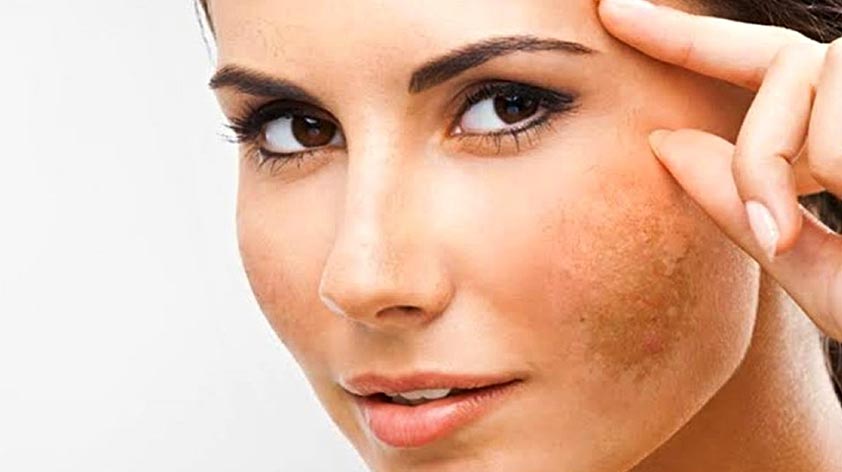
Melasma is a condition that causes the skin to have darker patches. It mainly affects women, especially pregnant women or those who are on contraceptive pills but it’s been known to affect men as well. The condition can also develop in areas of skin exposed to sunlight.
Melasma may not be very serious but the condition can lead to more severe cases if not treated. Depending on your condition or how melasma affects your quality of life, your primary doctor may recommend an appointment with a skilled dermatologist clinic like Harmony Aesthetics Clinic for melasma treatment. You can check out more about them here: harmonyaesthetics.sg. In the meantime follow on for Melasma Treatment Singapore: Causes, Symptoms & Prevention!
What are the Causes of Melasma?
The most common cause of melasma is having too much melanin, which is a natural chemical in the skin. This happens when an increase in certain hormones causes more melanocytes to produce pigment than usual.
Melanin protects the skin from ultraviolet light, and it also gives color to your hair, eyes, and skin. Abnormal melanocyte activity can be triggered by:
Birth control pills or hormone replacement therapy (HRT)
Using contraceptive pills and hormone replacement therapy (HRT) is one of the most common causes of melasma. When a woman takes contraceptive pills, they increase melanin production and make the skin darker. Also, birth control pills with estrogen and progestin can lead to melasma for some women because estrogen increases melanocytic activity.
Pregnancy
Hormones also affect pigmentation during pregnancy. This best explains why pregnant women tend to have dark patches on their face like chloasma (also known as the mask of pregnancy).
Staying in sunlight for long periods of time, especially if you are tanned already
Exposure to sunlight or tanning beds can make your skin produce more melanin, resulting in dark patches (melasma) on the face.
Thyroid disease
Thyroid disease like hyperthyroidism is another cause of melasma. It is linked with melasma because estrogen levels are increased with this condition.
Skin care products, makeup, and cosmetics
Using skincare products containing certain chemicals can trigger melasma. Cosmetic creams that contain mercury as a preservative, skin lightening or bleaching agents, perfumes, and hair dyes may worsen the condition.
How do you know it’s Melasma?
First things first; melasma is a common skin disorder that can affect people of all races and skin types under the right conditions. These skin darkening patches are typically symmetrical, meaning they appear on both sides of your body or face at the same time.
The condition causes an uneven brown or grey color to form on exposed surfaces of your skin, including your face, neck, chest, forearms, and hands. According to medical literature, women are more likely than men to develop melasma, with 50% to 70% of women reporting that they have had symptoms during pregnancy.
Symptoms include:
- Brown spots on your face
- Patches on your cheeks
- Hard, thick patches of skin on your forehead
- Patches on the bridge of your nose and upper lip
- Darkening of the skin on your neck and chest
Melasma Treatment in Singapore
Melasma is a difficult medical condition that takes an expert dermatologist to diagnose correctly. If you’re diagnosed with melasma, your dermatologist may prescribe medications to treat the condition. These include hydroquinone, tretinoin, and azelaic acid creams, which can fade dark patches on your skin over time.
For more severe cases of melasma that do not respond to topical treatments or for people who experience side effects from these creams, medication that contains estrogen, such as birth control pills, may be recommended. It is important that you choose an experienced and skilled dermatologist for melasma treatment in Singapore so that you can get the right kind of medications and therapy for melasma.
A dermatologist may also advise chemical peels or laser resurfacing to lighten dark patches on your skin. It is important to consult a doctor before taking these measures because they can damage your skin if not performed properly, leading to more problems in the future.
Prevention of Melasma
Preventing melasma may sound frustrating, considering that there are so many possible triggers for the condition. However, there are certain steps you can take to reduce your risk of developing this skin problem or having a relapse after treatment. Here are suggestions that may help:
Manage your stress levels
Stress is a known cause of melanocyte activity, which makes you more susceptible to having dark patches on your skin when exposed to ultraviolet rays from sunlight. Make sure that you get enough sleep every night and regularly practice meditation or yoga to keep stress at bay. You should also avoid going out in the sun during the peak hours between 11am and 3pm if possible, otherwise wear protective clothing and sunscreen with an SPF rating of between 30 and 50.
Use sunscreen on a daily basis
Sunscreen with an SPF rating above 30 is especially important in preventing melasma. Make sure that you cover all exposed parts of your body with sunscreen if you’re going to be out in the sun, even on cloudy or rainy days.
Pregnancy
Pregnancy can trigger melasma in some women because they experience hormonal changes during this time which affects melanocyte activity in the body. If you are pregnant or planning to get pregnant soon, talk to your doctor about ways you can prevent this skin condition from appearing during this period.
Avoid medications that trigger melasma
There are other medications for conditions other than pregnancy that can contribute to melasma, such as high blood pressure medication and anti-inflammatory drugs like ibuprofen. Talk to your doctor about how you can avoid taking these medications if possible.
See a dermatologist regularly
Undergo regular melasma screenings with a dermatologist so that they can monitor how well your treatment is working. If you notice new or worsening symptoms of this condition, contact them immediately and go over the changes in your body with them before it becomes more difficult to treat.
Melasma can be triggered by various factors, including ultraviolet rays, pregnancy, and certain medications. There are many treatment options for this condition available today, so make sure to consult a dermatologist for melasma treatment in Singapore before trying any treatment on your own at home.
At Harmony Aesthetics Clinic, they understand just how frustrating melasma can be, particularly if it keeps coming back after treatment. They offer a wide range of skincare treatments for this condition so that you can regain smooth and even-toned skin as soon as possible. For more information on their services or to schedule a consultation with a member of their expert medical team, contact them today. Call: +65 6970 5418. Harmony Aesthetics Clinic Singapore. 101 Irrawaddy Rd, #09-01 Royal Square @ Novena, Singapore 329565.
Have you, or anyone you know experienced the skin condition melasma? What solution worked best to remove or reduce it? Let us know in the comments below and join in the conversation on Facebook, Twitter & Instagram!









